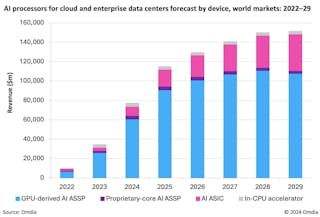AI's Breakthrough in Emerging Markets: 5 Key Opportunities (2025 Analysis)
Discover how AI is transforming emerging markets with 5 key opportunities and the challenges investors face in this comprehensive 2025 analysis.

AI's Breakthrough in Emerging Markets: 5 Key Opportunities (2025 Analysis)
Artificial intelligence (AI) is widely recognized as a transformative technology with the potential to significantly accelerate economic growth, productivity, and innovation worldwide. Emerging markets, in particular, stand to benefit from AI adoption to leapfrog traditional development hurdles. However, despite the promise, some investors remain cautious about the pace and scale of AI-driven growth in these regions, citing infrastructure, talent, and policy challenges.
AI’s Promise for Emerging Markets
Emerging markets—countries with developing economies and growing tech ecosystems—are increasingly seen as fertile ground for AI-driven growth. AI adoption can boost sectors such as agriculture, manufacturing, healthcare, and finance, enabling improved efficiencies, automation, and new business models. For example:
- Agriculture: AI-powered analytics and IoT devices can optimize crop yields, monitor soil health, and reduce waste.
- Healthcare: AI-driven diagnostics and telemedicine can expand access to quality care in remote areas.
- Financial services: AI enhances credit scoring, fraud detection, and customer service, expanding financial inclusion.
The global AI data center market, a critical infrastructure component, is growing rapidly—valued at $167.8 billion in 2024 and expected to reach $236.4 billion by 2025, with emerging markets attracting increasing investment. This infrastructure growth supports AI adoption by improving compute capacity and data processing capabilities essential for AI workloads.
Moreover, AI-driven productivity gains could help emerging economies overcome traditional limitations in labor and capital, accelerating industrialization and economic diversification.
Investor Skepticism and Challenges
Despite this optimism, some investors express reservations. Key concerns include:
- Infrastructure gaps: Emerging economies often face deficiencies in reliable electricity, internet connectivity, and advanced data centers, which are foundational for AI deployment.
- Talent shortages: There is a scarcity of skilled AI professionals, engineers, and technicians to develop, implement, and maintain AI systems.
- Regulatory and policy uncertainties: Weak governance frameworks, data privacy concerns, and inconsistent regulations may hinder AI adoption and investment.
- Energy constraints: AI infrastructure, particularly data centers, demands substantial energy, a challenge where sustainable power sources are limited.
These challenges create a barrier to scaling AI solutions effectively, leading some investors to adopt a cautious approach, balancing the potential upside with risks of stranded assets or slower-than-expected returns.
Global AI Competition and Emerging Markets
The global AI landscape remains dominated by advanced economies such as the U.S. and China, which lead in research, infrastructure, and investment climate. The U.S. benefits from robust compute infrastructure and a favorable investment environment, while China excels in research output and AI application adoption. Emerging markets lag behind but have unique opportunities to tailor AI solutions to local needs.
Nevertheless, the competitive gap highlights the need for emerging economies to invest strategically in AI enablers such as data centers, talent development, and regulatory frameworks to capture AI’s benefits fully.
Economic Impact and Market Trends
AI spending has become a significant driver of economic growth globally. In the U.S., for example, AI investments in data centers and infrastructure have offset economic headwinds such as trade tariffs, contributing to strong market performance and consumer spending. Emerging markets, by adopting AI technologies, could similarly experience uplift in GDP growth, industrial productivity, and innovation capacity.
However, the rapid pace of AI investment also raises concerns about a potential bubble. Venture funding for AI startups has surged, sometimes outpacing actual adoption rates by enterprises. For emerging markets, this underscores the importance of aligning investment with practical deployment and local business needs.
Looking Ahead: Strategic Imperatives for Emerging Markets
To harness AI’s potential, emerging markets must address core constraints:
- Build AI infrastructure: Expand data centers, ensure reliable power, and improve internet connectivity.
- Develop human capital: Invest in education and training to build AI talent and technical skills.
- Strengthen policy frameworks: Establish clear regulations for data privacy, AI ethics, and investment protections.
- Promote sustainable AI: Balance energy needs with green technologies to support scalable AI growth.
International partnerships and investments from sovereign wealth funds and global tech companies could accelerate this development, provided there is a clear roadmap and alignment with local economic priorities.
The promise of AI for emerging markets is considerable, offering a powerful catalyst for economic transformation. However, realizing this potential requires overcoming significant structural and strategic challenges, which explains the mixed sentiment among investors. With deliberate policy and investment focus, emerging markets could emerge as important new frontiers in the global AI revolution.



